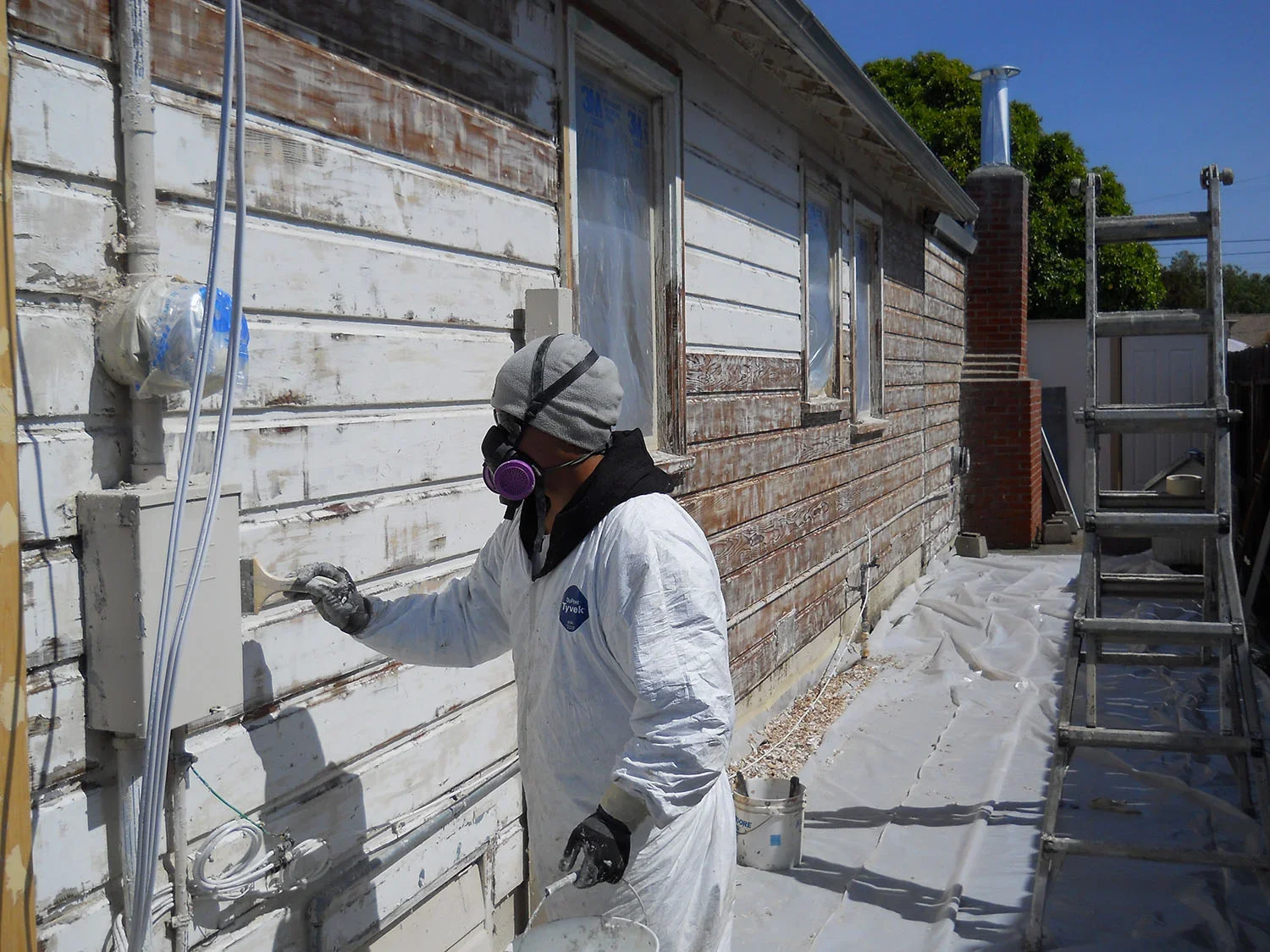How to Sell Your House with Lead Paint “As-Is” in DC
Selling a home with lead-based paint in DC can seem daunting, especially when you’re aware of the potential health risks and strict disclosure laws involved. However, it’s entirely possible to sell your house “as is” — even if it contains lead paint — as long as you handle the process transparently and strategically. Whether you’re looking for a quick sale or aiming to get the best possible offer, here’s everything you need to know.
1. Understanding the Issue: What Lead Paint Means for Homeowners
Lead-based paint was commonly used in homes built before 1978, the year it was officially banned in the United States. When intact, lead paint isn’t always dangerous. The real risk arises when it deteriorates — peeling, chipping, or turning into dust — which can cause lead poisoning, particularly in young children and pregnant women.
If your house predates 1978, there’s a good chance it contains lead paint somewhere, even if it’s beneath newer layers. Federal and state laws require sellers to disclose this information before selling. That means you’ll need to inform buyers of any known presence of lead paint or lead hazards.
2. Legal Requirements: What You Must Disclose
Federal law — specifically the Residential Lead-Based Paint Hazard Reduction Act of 1992 (Title X) — outlines clear requirements for selling older homes. Here’s what you must do:
Provide a Lead Paint Disclosure Form: You must complete a standard disclosure form stating whether you know of any lead paint or lead hazards in the property.
Offer the EPA Pamphlet: Give buyers the EPA’s official booklet, “Protect Your Family from Lead in Your Home.”
Allow a 10-Day Inspection Period: Buyers are legally entitled to conduct a lead inspection or risk assessment at their own expense.
Include a Lead Paint Addendum: This document becomes part of the sales contract, confirming that all disclosures and notices were properly provided.
Failing to meet these requirements can lead to legal and financial consequences — so honesty and compliance are key.
3. Decide Whether to Remediate or Sell “As Is”
Before listing, you’ll need to decide whether to remediate the lead paint or sell the property “as is.” Each approach has pros and cons.
Option 1: Remediate Before Selling
If your goal is to attract traditional buyers and possibly secure a higher price, lead paint abatement may be worth considering. Certified professionals can remove or seal off lead-painted areas, and providing proof of remediation can make your home more appealing.
However, remediation can be costly — ranging from $2,000 to $15,000 or more, depending on the home’s size and extent of contamination. For many sellers, especially those short on time or funds, this isn’t the most practical route.
Option 2: Sell “As Is”
Selling “as is” means you’re not making any repairs or updates before closing. You simply disclose the lead paint issue upfront and price the home accordingly. Many cash buyers, real estate investors, and house-flipping companies are willing to purchase such properties without requiring remediation. This route offers a faster, simpler sale and avoids the hassle of dealing with contractors and inspections.
4. Attracting the Right Buyer
To sell a home with lead paint as is in DC, you’ll need to target the right audience. Traditional homebuyers might hesitate due to renovation costs or health concerns, but cash investors and “we buy houses” companies specialize in these situations.
Here’s why investors are your best option:
They buy properties in any condition, including those with lead paint or structural issues.
They offer quick closings — often within 7 to 14 days.
They pay in cash, so there’s no financing delay or appraisal contingency.
You can avoid repairs, staging, and cleaning.
When you work with a reputable investor, they’ll assess the home’s value, factor in the remediation costs, and make a fair, all-cash offer. It’s an excellent solution if you need to move fast or want to minimize the stress of selling a problematic property.
5. Pricing Your Home Accurately
If you’re selling on the open market, pricing your home realistically is critical. A visible lead paint issue can reduce your home’s appeal — and therefore, its value — to conventional buyers. Work with an experienced real estate agent familiar with “as is” sales. They can help you:
Compare prices of similar properties with known issues.
Highlight the home’s positive features (location, structure, lot size).
Set an attractive, competitive asking price to draw serious buyers.
If your goal is a fast, no-hassle sale, a slightly lower asking price can still yield strong interest — particularly from investors.
6. Steps to Sell a House with Lead Paint “As Is”
Here’s a straightforward plan to follow:
Get an Inspection (Optional): A lead paint inspection or risk assessment can confirm whether lead is present and where. This can help you disclose accurately.
Prepare Your Disclosures: Gather your required lead paint disclosure form and EPA booklet.
Decide Your Selling Strategy: Choose between listing publicly or selling directly to a cash buyer.
Be Transparent in Your Listing: Use language like “property sold as is” and disclose the lead paint clearly.
Negotiate Smartly: Expect buyers to factor remediation costs into their offers. Emphasize the home’s strengths to offset this.
Close the Deal: Complete all disclosure paperwork and transfer ownership. If selling to a cash buyer, you may close within days.
7. Why Selling “As Is” Can Be a Smart Move
While the idea of selling a house with lead paint may seem like a burden, it doesn’t have to be. By being transparent, pricing competitively, and targeting investors or cash buyers, you can sell efficiently and avoid the high costs of remediation. For many sellers — especially those relocating, managing inherited property, or dealing with financial constraints — selling “as is” offers speed, simplicity, and peace of mind.
Conclusion
Lead paint doesn’t have to derail your home-selling plans. With full disclosure, a clear pricing strategy, and the right buyer, you can sell your property quickly and legally — even without making repairs. Whether you decide to work with a real estate agent or a local cash buyer, prioritize honesty and convenience over perfection. In the end, a transparent “as is” sale can help you move forward faster while still getting fair value for your home.

